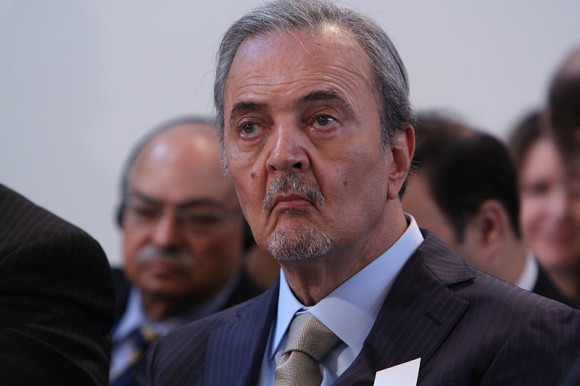Policy: Saudi Foreign Policy after Saud AlFaisal
August 21, 2012
The Institute for Gulf Affairs has learned that Saudi foreign Minister Saud AlFaisal has postponed his plans to travel to the United States for treatment due to serious illness. His health condition appears to be extremely critical and possibly fatal, according to sources familiar with his condition and spoke to IGA on the condition of anonymity. AlFaisal is currently receiving treatment at The Jeddah Specialist Hospital.
The 70-year old member of the ruling Monarchy is the oldest serving foreign minister in the world, and inherited his position from his father King Faisal- also a foreign minister- who was assassinated in 1975 by his nephew Faisal Bin Misaed. AlFaisal holds strong anti-Shia positions that are made clear in his policy of banning the employment of Saudi Shia as diplomats. Blacks are also banned by AlFaisal from the diplomatic corps. He was educated at Princeton and received a Bachelor’s in Economics.
The likely departure of Faisal means that AbdulAziz, the son of King Abdullah and deputy Minister of foreign affairs will be the next Saudi foreign minister and bringing an end to AlFaisals’ 79-year domination of the foreign affairs ministry. Established in 1932, the ministry was run by three ministers, King Faisal who held the ministry’s profile while he was king until his death in 1975, his son Saud, and Ibrahim AlSowyal, the only non-AlSaud to hold a ministry profile who served for one year in the 1960s.
Interim Leadership
Earlier this week, King Abdullah appointed Nazar Madani, the state minister for foreign affairs to replace Ekmeleddin İhsanoğlu as the Secretary-General of the Organization of Islamic Cooperation. Madani was the day to day foreign minister and in charge of running the affairs of the ministry due to AlFaisal’s illness which included Parkinson’s and now intestinal disease.
Who is the New Foreign Minister?
Abdulaziz bin Abdullah was born in 1963 to a Lebanese mother and attended the University of Hertfordshire in the United Kingdom earning a Bachelor degree in Political Sciences. Prior to his appointment as Deputy Foreign Minister in July 2011, he worked as a royal advisor on Syrian and Lebanese affairs. Previously he held a position in the Saudi National Guards. In July, he represented Saudi Arabia in the Friends of Syria meeting in Paris.
The accelerated ascension of Abdulaziz bin Abdullah to the minister of foreign affairs position will likely cause a shift in Saudi foreign policy in favor of a pragmatic, rather than ideological approach developed under AlFiasal. This shift may involve a more active engagement with regional players including Iran, Turkey, and Egypt as well as non-state actors such as Hamas, the Muslim Brotherhood, and Hezbollah. The recent invitation of Iranian President Mahmoud Ahmadinejad to the Makah Islamic Summit this month suggests that the upcoming Foreign Minister is adopting his father’s political style.
Ben Wurtzel, an analyst at the Gulf Institute stated that “the increasingly close relationship between Egypt and Iran will be one of the earliest tests for the new Saudi Foreign Minister. He will need to set a less-antagonizing tone towards Iran and Egypt which both have larger populations and republican government models.”
Saudi minister of foreign affairs since the foundation of the Saudi State in 1932
1- Faisal bin Abdulaziz (later king) 1932-1960 then 1962-1975
2- Ibrahim AlSwyal, 1961-1962.
3- Saud AlFaisal 1975-Presnet



Comments are closed.